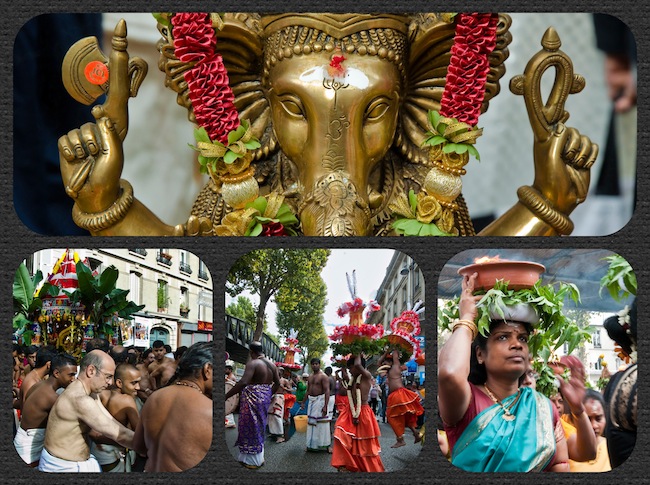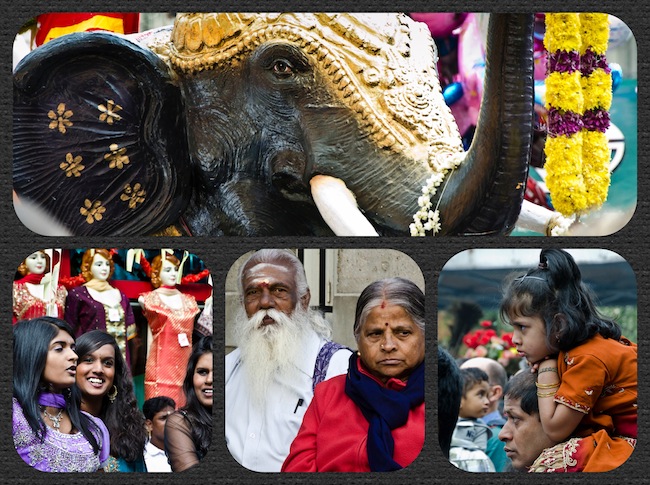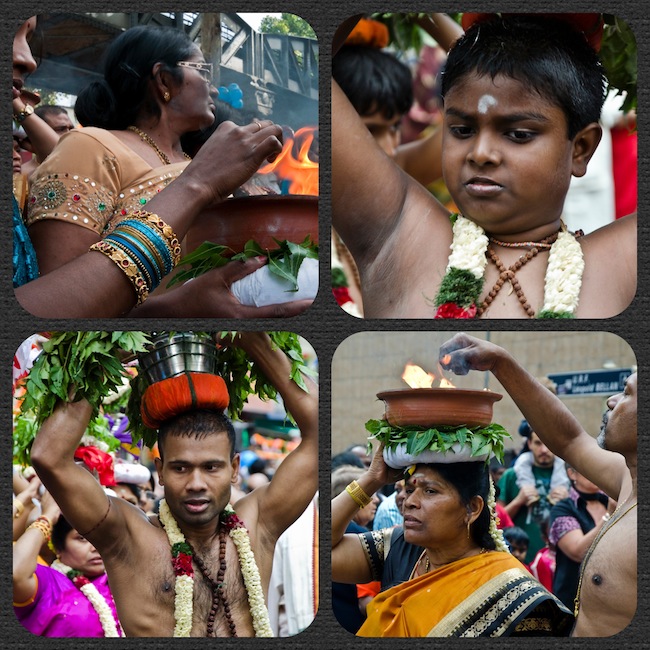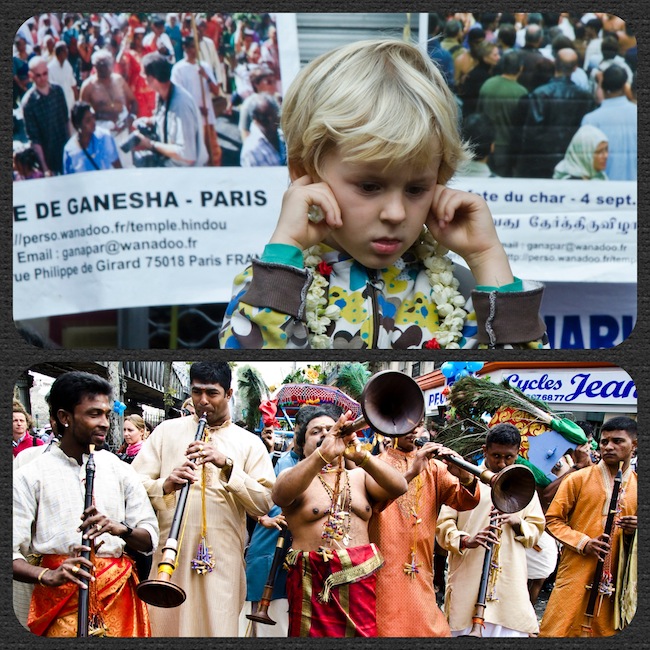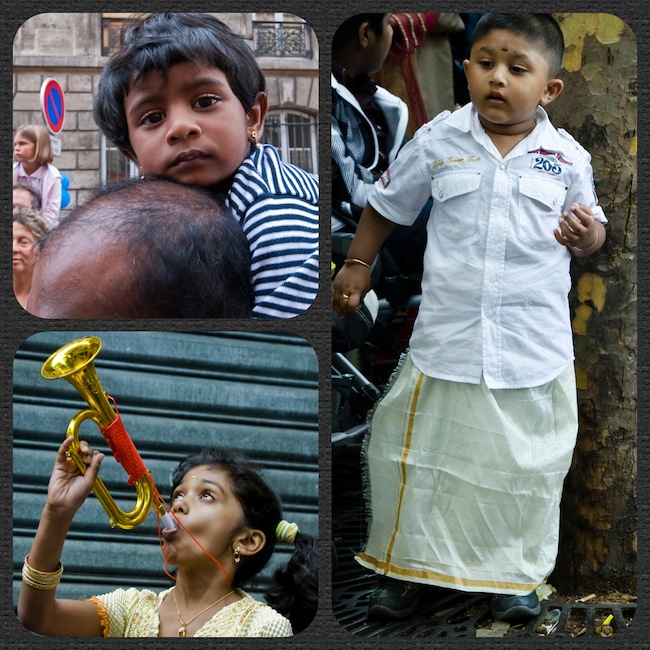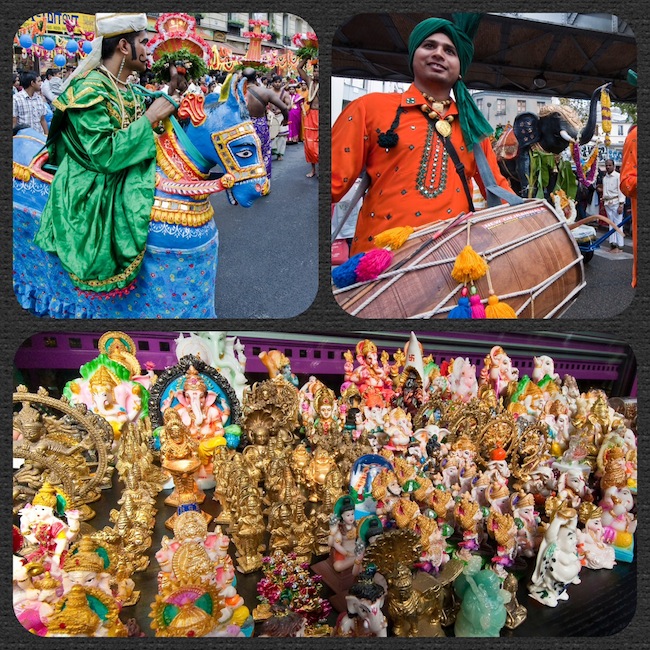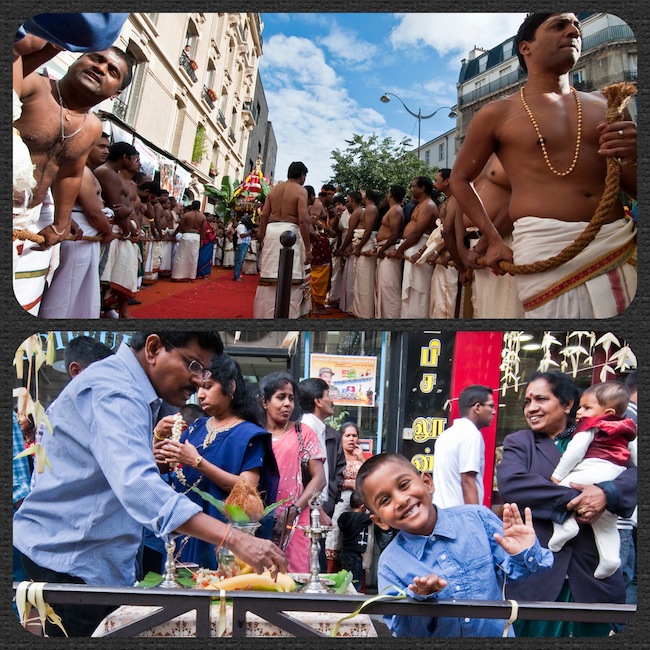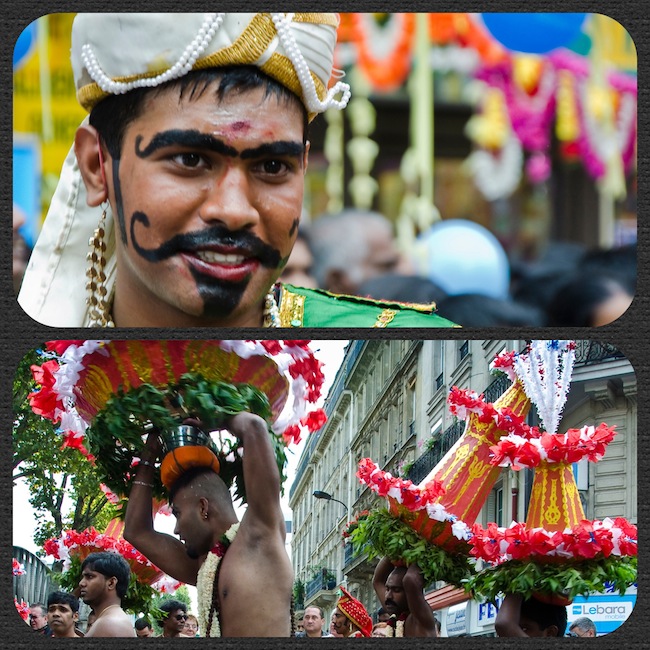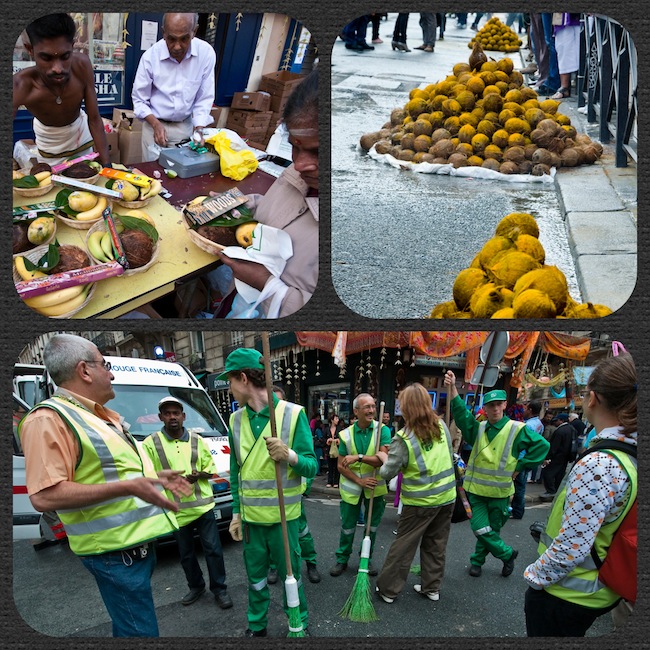
Long ago, Ariadne, the Cretan princess, found her way through the labyrinth—where the Minotaur was hidden—with the help of a clew, a ball of thread. The thread changed colors, twelve in all, as she wove back and forth, north and south, east and west, until she reached the center.
I have vague intimations of this mythical life that underlies the present one through all the threads that connect me to memory and the people I love.
Our friend, T., is in Paris finishing up a novel that takes place in France.
She taught at the university where Richard and I got our MFAs in writing poetry and fiction.
Her friend and ours, E., who founded this MFA program, recommended to T. that she go to a Paris restaurant called Le Bouledogue. The owners have two French bulldogs and attract customers who bring their bulldogs to sit at the table with them as they dine.
Though we are Cat People, and T. and E. are Dog Persons, the prospect of seeing a roomful of bulldog diners is irresistible.
And it means we can spend more time with T.
It is not only La Nuit du Bouledogue, it is also Paris’ annual summer festival, La Fête de la Musique. Musical groups from all over the world will be performing all over the city on this longest night of the year.
At 6:00, we meet in front of our building, and begin our meandering towards Le Bouledogue in search of music.
At the Pont de la Tournelle, we descend the steps to the quai along the Seine.
Electronic music booms from a boom box, within view of Notre Dame. Strange dissonance.
Richard dashes ahead, snapping photos.

“Have you seen Midnight in Paris?” asks T.
“Yes,” I say, “have you?”
“Yes,” she says. “What did you think?”
“Since you’re asking, you tell me.”
“I hated it!” she says. “One cliché after another.”
“And we loved it. I walked in expecting nothing, since I haven’t liked his recent films. But it’s what he does best, a light pastry, a chocolate éclair.”
We discuss what she hated and what we loved.
“And The Moderns,” she says, “That’s a film I loved.”
“And I hated it!”
“You did? But why?”
“I thought it was pompous, pretentious, static, phony. So did Richard.”
Now we’re both laughing.
We double back to the Petit Pont and cross the Seine.
T. asks me about my first trip to Paris.
I tell her of crossing the Atlantic on the Queen Elizabeth at the age of 19 with my 18-year-old sister, Jane, and of being pursued by an Italian-American writer on the ship. Of resisting him. Of staying in a pension run by nuns with Jane in Paris. Of the French photographer who chased her all over Paris.
And then I had an experience that blew away the last trace of Christian belief in me, since losing most of it at an Episcopalian boarding school.

We are now at the entrance of Notre Dame.
T. wants to visit Joan of Arc, who makes an appearance in her novel.
We enter the Cathedral in the midst of a service. The priest’s voice has an unearthly beauty and innocence, as if he’s singing of the Christ that St. Francis of Assisi knew, the Christ of nature and kindness, rather than the Christ of torture and blood.
To the right is a transparent wall, behind it a priest sitting at a table, facing a parishioner. It appears that there is a confession going on.
If I were to face that priest, what would I confess?
I can’t think of a thing that I haven’t already admitted to myself or to people I love, whom I might have inadvertently hurt.
The priest’s voice is a poem, in an accent I can’t place, though its origin isn’t in France.
I want to sit and listen to him. I move toward the pews.
A sign blocks the way: Do not sit if you are not here for the entire service, it says.
The three of us walk to the statue of Joan of Arc. I do the math from her birth date to her death. She was 19 years old the year she was burned at the stake.
We turn towards the altar. The priest is a young man; his face and accent suggest that he’s from an African country. His sermon is a song.
The choir is singing now. A soloist in a long blue robe stands in front of the altar, and sings.
Above us are flower-mandalas of many colors, fashioned out of stained glass.

Out of Notre Dame, I finish my story. That summer I spent a weekend visiting Giorgio D’Ambrosio in Zurich, where he worked. There was moonlight. A balcony. And love. I lost what I was ready to lose. And it was ecstatic for both of us. Until he began weeping with guilt. Sex was so wrong! He’d go to Mass in the morning and confess!
I was shocked out of my mind. Instant complete conversion: if Christianity called this wrong, I was no Christian, I was a pagan.
Richard is ahead of us, taking photos. We pass the Pompidou, and arrive at Le Bouledogue. People are seated outside, but nowhere are there bulldogs!
I scan the menu, and see what I’m looking for: salmon with salad. T. orders first, the same thing, and Richard wants duck.

I shudder, though it makes no sense. I eat chicken and turkey. But I couldn’t eat a duck. We’ve had duck friends. Most recently, Grace (Kelly) in Playa del Rey, the white domestic duck abandoned in the lagoon, who soon attracted three mallard suitors, because of her exotic coloring, two of whom lasted through several mating seasons.
T. tells us the story of her novel, which takes place in World War II France. It is a compelling tale about identity, about Christians and Jews, French and Germans.
This is a timely subject, I say. The metamorphosis of victim into bully is what is happening now in Israel.
She agrees.
And one of the worst things that humans do to each other is scapegoating, and witch hunts.
The waiter arrives with dinner.
“But where are the bulldogs?” we ask.
“In two or three minutes, they arrive!” He says.
The salmon has arrived too. And it’s raw. How did I miss the word, “tartare?” Look at this beautifully prepared salmon tartare. And I can’t eat a bite. I substitute for the fish a side dish I wouldn’t ordinarily touch, French fries.
Now, two sturdy champagne-colored male bulldogs arrive with the owner of the restaurant. He ties their leashes to a brass rail at the end of the bar, and they plop down side by side, legs splayed.
But no customers come to sit at the tables with their bulldogs.
We head out to hear “Young Talent,” whatever that is, at the Musée Carnavalet in the Marais. But the line to get in fills half the courtyard.

And so we meander, past a Kiehl’s Beauty Products on rue Franc-Bourgeois, where a French rock band plays “Got my Mojo Working;” past an electric jazz band under the arcades at Place des Vosges, with electric violin, guitar and drums; past a folk duo as we round the elegant square; past a Christian choir singing “Jesus, mon fort et mon Rocher,” and back towards the Île Saint-Louis and the Seine.

On the other side of the Quai de la Tournelle is La Rotisserie du Beaujolais, my mother's favorite Paris restaurant.
We tell T. about the resident cat, Beaujolais, who sits at the front corner table when three or fewer diners occupy his chosen table of four. Just as there were no bulldogs tonight sitting at the dinner table, neither are there cats.
Strange how almost nothing I was looking for tonight—bulldogs sitting at the table with diners, cats doing the same, a good salmon dinner myself—has happened, yet seeing T. made it all irrelevant. We go out to explore, and what we find is human connection.
We reach Boulevard Saint-Germain and kiss T. goodbye.

On our block of Cardinal Lemoine, we hear the sweetest sound, and see the most enchanting sight: there are couples dancing to an Irish-sounding tune, dancing in the street! There are women dancing together, children dancing, men and women dancing, grandparents dancing with grandchildren.
A band stands on the sidewalk, playing a gay tune.
Richard kneels to take the right shots.
I stand on the opposite sidewalk in a state of delight.
“Is this Irish music?” I ask the woman standing next to me.
“It’s music from Bretagne,” she says. “It’s close to Irish, though.”
“Of course—it’s so fresh and gay! Like the music of the troubadors.”
“Yes,” she says, “it is.”
The band stops playing.
A middle-aged woman drenched in sweat after dancing with a girlfriend, comes over to stand beside her friend.
Her friend asks her to confirm that this is music from Bretagne.
“Oui! Oui!” says the woman.
We push open the big green door to our courtyard, feeling there’s no place like home.

 03.31.2013
03.31.2013 

























 Fillmore Auditorium,
Fillmore Auditorium,  Hindu,
Hindu,  Holi,
Holi,  holidays,
holidays,  religion,
religion,  spring in
spring in  Paris Life
Paris Life 

